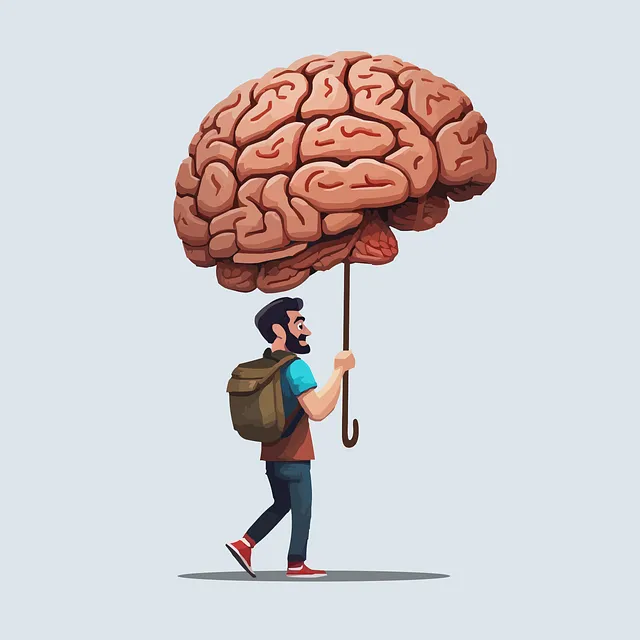Understanding mood regulation strategies is crucial for managing mental wellness, with stigma reduction efforts gaining global momentum. Inpatient services like those offered by Kaiser in Northglenn provide intensive treatment, focusing on evidence-based practices (CBT, mindfulness) and personalized approaches. Northglenn's intimate environment offers individual therapy and structured group activities, ideal for quiet support. Kaiser, with larger facilities, integrates community-oriented frameworks addressing diverse needs from depression prevention to crisis intervention. Effective strategies include cultural competency training to meet unique patient demographics. Both Northglenn and Kaiser cater to different patient requirements, offering comprehensive care that empowers individuals to regulate moods and lead fulfilling lives.
In today’s fast-paced world, effective mood regulation strategies are essential for maintaining mental well-being. This article explores various approaches to managing moods, focusing on a comparison between Northglenn and Kaiser’s inpatient mental health services. We delve into the benefits and differences of these programs, emphasizing personalized strategies for optimal results. Discover how tailored interventions can significantly impact individuals’ lives, offering hope and healing in the pursuit of emotional balance, especially considering the accessibility of Northglenn vs Kaiser’s inpatient facilities.
- Understanding Mood Regulation Strategies
- Northglenn vs Kaiser: Inpatient Mental Health Services
- Effective Implementation and Personalized Approaches
Understanding Mood Regulation Strategies

Understanding Mood Regulation Strategies is a vital step towards managing mental wellness. In today’s world, where mental illness stigma reduction efforts are gaining momentum, learning effective techniques can empower individuals to navigate their emotional states. Mood regulation isn’t just about feeling happy; it involves recognizing and managing a wide range of emotions, from joy to despair. This process includes understanding triggers, developing coping mechanisms, and seeking appropriate support when needed.
For those in Northglenn seeking specialized care, Kaiser’s inpatient mental health services offer a safe space for intensive treatment and recovery. However, it’s important to note that the right strategy varies from person to person. Mental wellness is a holistic concept, influenced by factors like environment, relationships, and personal experiences. Therefore, integrating mood regulation strategies into daily life can significantly enhance overall well-being. Additionally, healthcare provider cultural competency training plays a crucial role in ensuring sensitive and effective support for diverse patient populations.
Northglenn vs Kaiser: Inpatient Mental Health Services

When considering inpatient mental health services, a key contrast lies between Northglenn and Kaiser. Both organizations offer specialized care for individuals dealing with severe mental health issues, but their approaches differ significantly. Northglenn typically provides a more tailored, intimate environment where patients receive individual therapy and structured group activities designed to stabilize their moods and equip them with coping mechanisms. This setting is ideal for those seeking a quiet, supportive space to focus on their mental well-being.
In contrast, Kaiser often operates larger facilities that offer a broader spectrum of services. Their inpatient programs are known for integrating advanced therapies, such as dialectical behavior therapy (DBT) and cognitive behavioral therapy (CBT), within a community-oriented framework. This approach caters to diverse patient needs, including those struggling with depression prevention, crisis intervention guidance, and managing complex mental health conditions. Moreover, Kaiser places a strong emphasis on healthcare provider cultural competency training, ensuring that staff are prepared to address the unique needs of various patient demographics.
Effective Implementation and Personalized Approaches

In navigating mental health challenges, Northglenn residents fortunate enough to have access to Kaiser’s inpatient services benefit from a structured environment conducive to intense emotional regulation. The implementation of effective strategies is key; this includes integrating evidence-based practices such as cognitive behavioral therapy (CBT) and mindfulness techniques. Personalized approaches are paramount, recognizing that each individual’s experience with mood disorders is unique. Tailoring interventions to align with personal preferences and cultural backgrounds ensures higher adherence and effectiveness in managing symptoms.
Crisis intervention guidance plays a pivotal role, offering immediate support during intense periods. Additionally, promoting proactive stress reduction methods empowers individuals to take control of their well-being. By combining these strategies, Northglenn residents can access comprehensive care tailored to their specific needs, ultimately enhancing their ability to regulate moods and lead fulfilling lives despite challenges presented by mental health issues—including those that might necessitate inpatient care at facilities like Kaiser.
In exploring mood regulation strategies, this article has highlighted the importance of personalized approaches in effective implementation. While both Northglenn and Kaiser offer inpatient mental health services, each has unique strengths. Understanding these variations allows for better-informed decisions when seeking support. By integrating insights from research and clinical experiences, individuals can navigate their journey towards emotional well-being more effectively, ultimately fostering a healthier and more balanced life.






